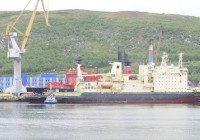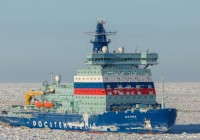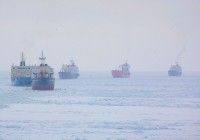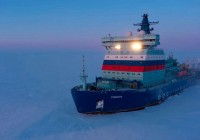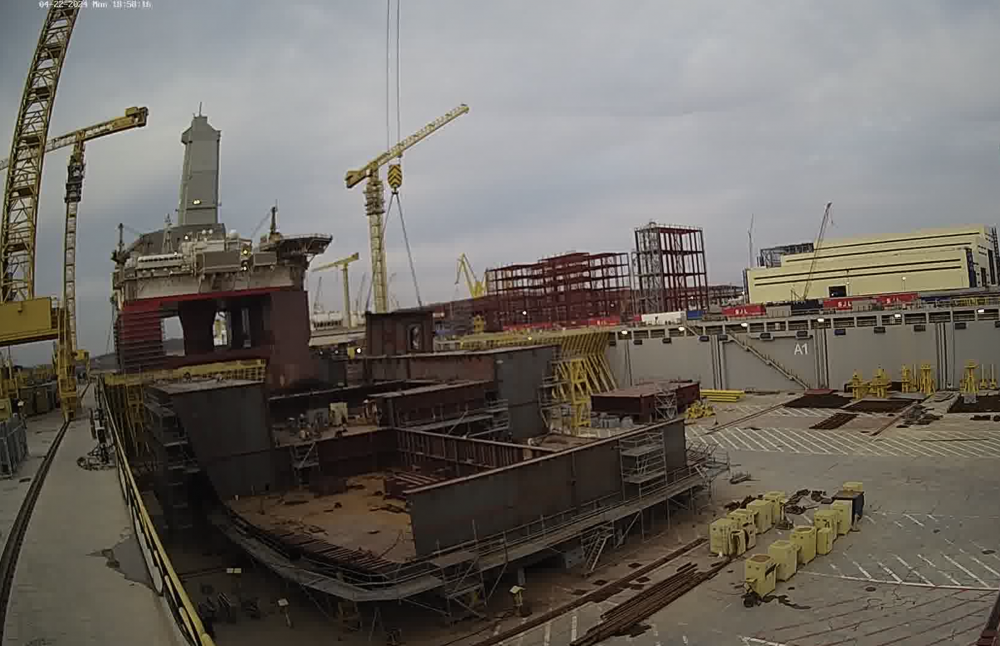
Slow progress, huge budget overrun for Rosatomflot’s lider-class icebreaker
ADVERTISEMENT
Watching the live webcam has, to put it mildly, been tedious. April 23 marks four years since the contract was signed by Rosatomflot in Murmansk and the Zvezda shipyard in Bolshoi Kamen near Vladivostok.
Not much progress has been made since 2020.
The contract said the icebreaker is to be commissioned by 2027. That, however, will not happen.
Only a few tens of meters to the lower decks of what will be the hull of the giant vessel is in place, the webcam at the shipyard shows.
Moscow’s war against Ukraine is part of the reason for slow progress.
Hull casting and mounting arms, as well as other equipment, were originally to be delivered by the company Energomashspetsstal in the Ukrainian city of Kramatorsk in 2022. That plant was destroyed by Russian bombing in April 2022. Zvezda yard had to start looking for alternative suppliers.
New tenders
Russia’s public portal for purchases has recently announced nine tenders for equipments, metal structures and pipes for the icebreaker with a total value of more than 2,2 billion rubles (€22 million). Russian companies are invited to provide offers to the tenders with deadline now in April.
ADVERTISEMENT
Although many new domestic suppliers and full speed ahead for construction, it is still unclear when the new icebreaker will be commissioned and can start sailings.
According to newspaper Kommersant, the project could ultimately become up to 60 percent more expensive than planned. That could bring the price to 200 billion rubles (€2,4 billion).
The 120 MW nuclear-powered icebreaker that is named Rossiya will be the largest icebreaker in the world. Capable of crashing through 4 meter thick ice, it shall keep the eastern part of Russia’s Northern Sea Route open for LNG carriers all year round.
Rosatomflot’s current fleet of Project 22220 icebreakers have a beam of 34 meters, while the new Rossiya will be nearly 48 meters at its widest point. That makes a big difference when escorting ships across the most difficult parts of heavy ice mid-winter.
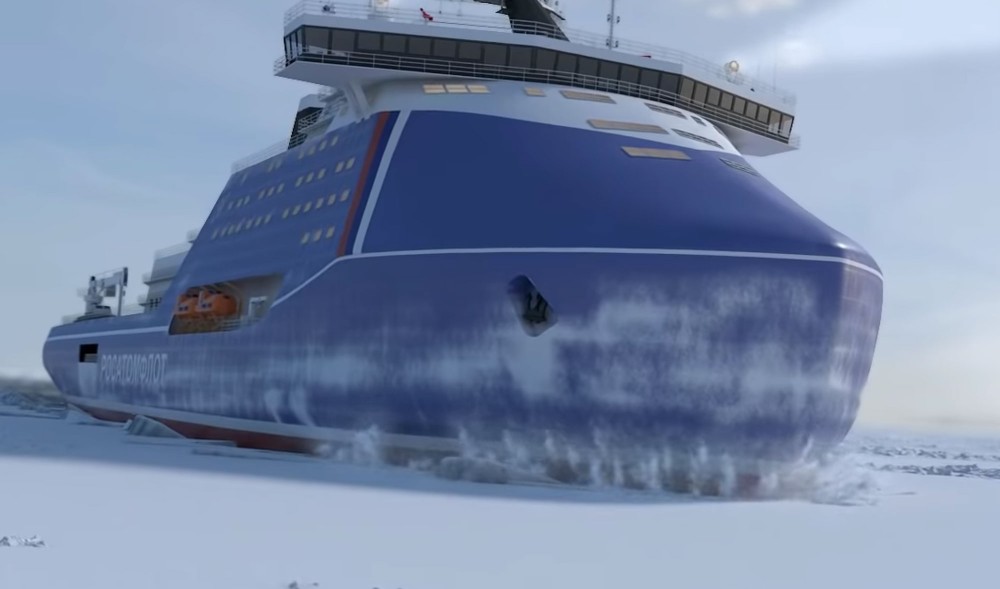
Rossiya will be equipped with two RITM-400 reactors providing twice the power compared with the Project 22220 icebreakers.
Rosatomflot has its home port just north of Murmansk in the Kola Bay. Here, maintenance and changing of nuclear fuel rods take place.
Originally three icebreakers of the Lider-class were supposed to be built. Today, funding and practical challenges show that Russia has more than enough with the first.
ADVERTISEMENT
The Barents Observer Newsletter
After confirming you're a real person, you can write your email below and we include you to the subscription list.



